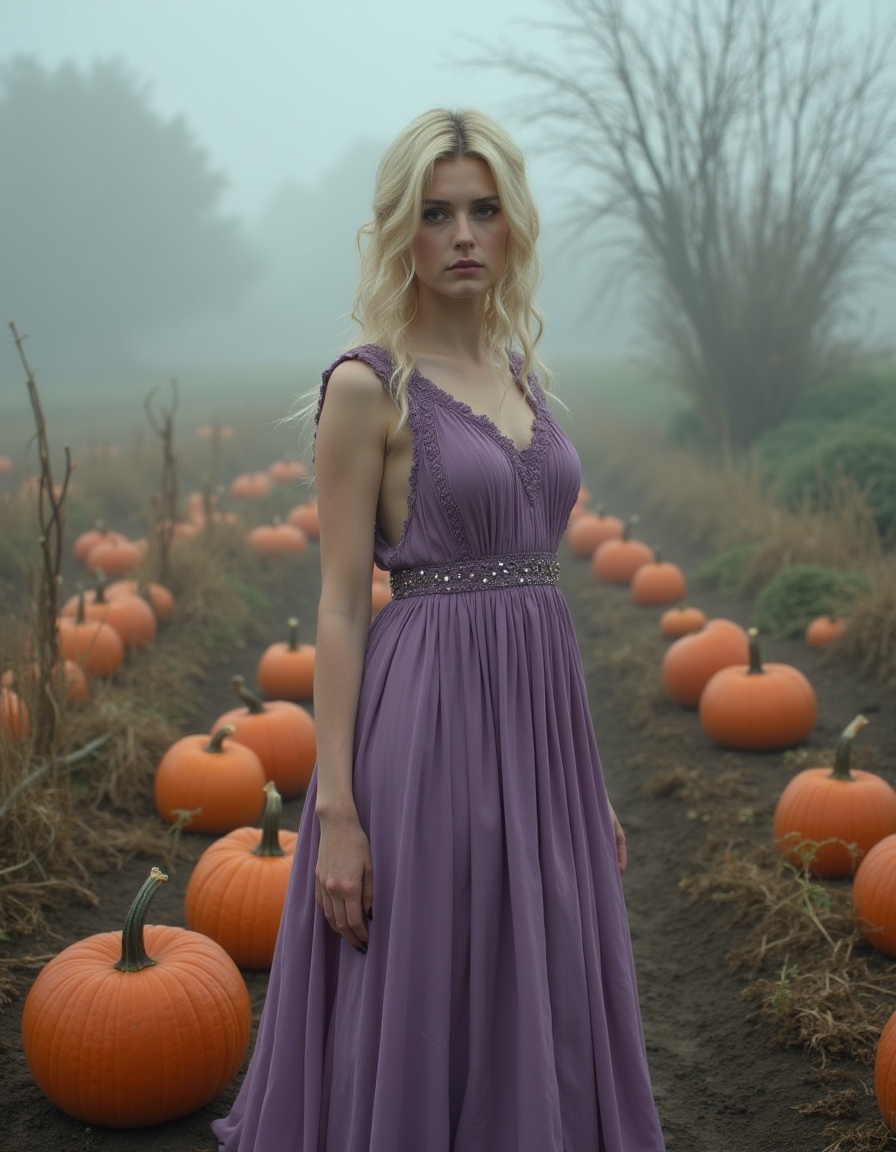Summary: Digital Ghosts: The Gothic Beauty of Our Online Selves. Every post is a room, every photo a ghost. Explore the cozy gothic aesthetic of digital haunting—and why we choose to keep echoes of ourselves online.
Think of your online presence as a house. Each post is a room you’ve decorated: one lined with bookshelves and candlelight, another with pressed flowers in frames, another with autumn skies captured at dusk. Over time, the house grows larger, filled with images, words, and moments that may no longer reflect who you are, but remain as part of your architecture. This is the nature of digital haunting—not frightening, but quietly persistent. We haunt ourselves with the traces of who we once were.
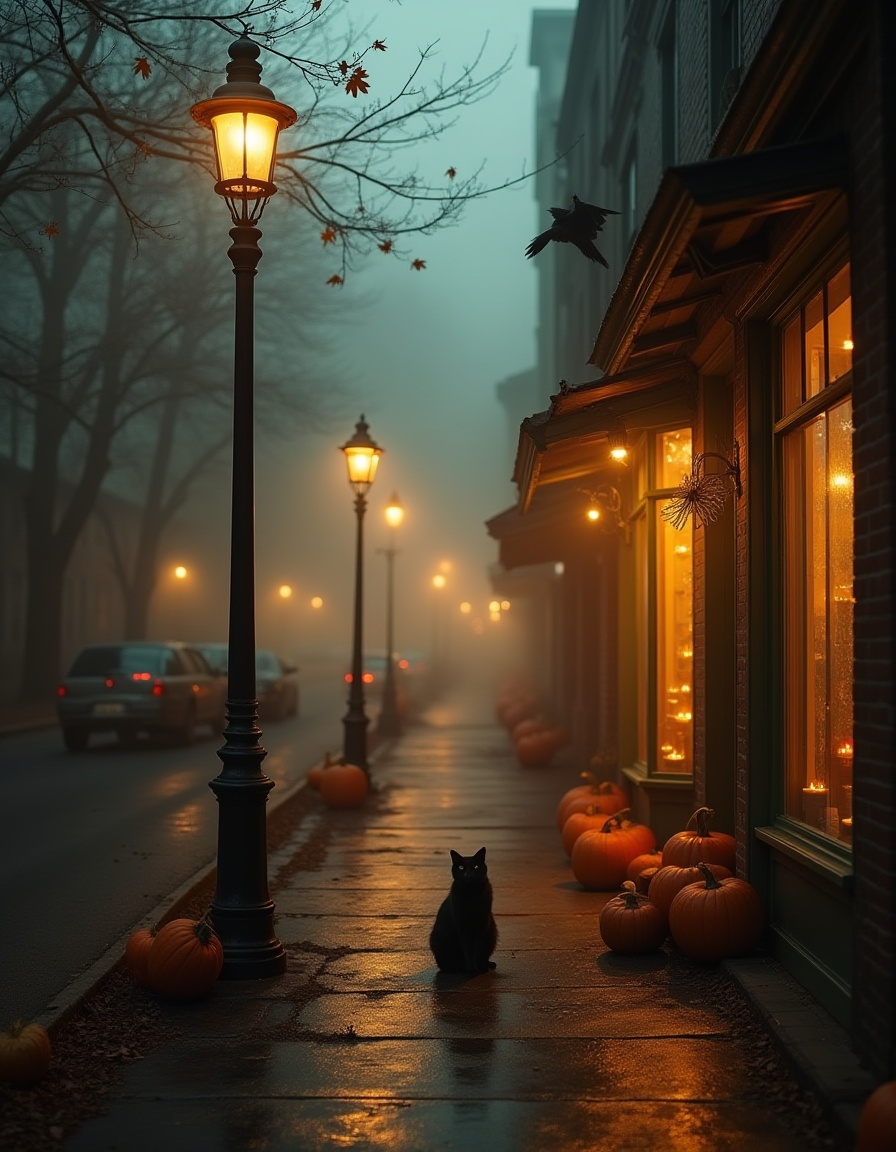
When you scroll back through your own feed, you are moving through time. A photo of a velvet dress you loved last year, a snapshot of a foggy morning that spoke to you in October, a quote you shared during a difficult winter—they are all still there, flickering like candlelight in the corridors of your digital self. Unlike physical objects, which wear down and disappear, online traces linger. They wait. They are our ghosts, and we live among them.
A Reminder of Who You Were
There’s something comforting about stumbling across your own past mood board or discovering a post you forgot you shared. It’s like finding an old letter tucked inside a book: a reminder of who you were, still speaking softly. The gothic aesthetic thrives in this environment because it already values the echo, the afterimage, the beauty of something slightly out of reach. A photograph of a Victorian parlour looks just as at home in a feed today as it might have in a scrapbook a century ago. Both are ways of preserving the aesthetic.
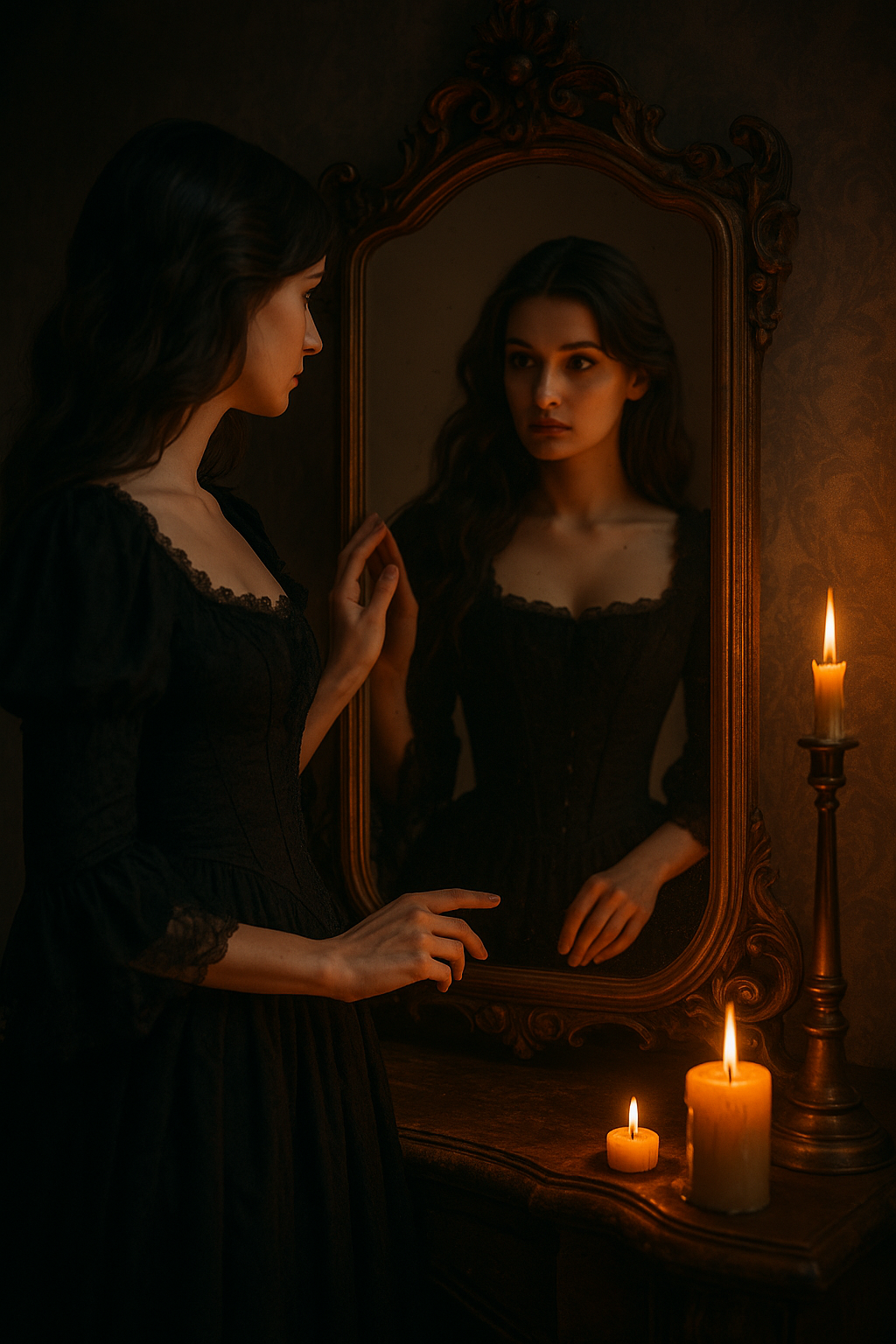
Platforms amplify this with their “memories” features—reminding you of what you posted years before. For some, it feels intrusive, but for lovers of gothic aesthetics, it can feel poetic: a small haunting by your former self.
The Gentle Ghosts of Style
In gothic-inspired digital spaces, some creators intentionally leave aesthetic “ghosts” of themselves online: carefully chosen symbols, recurring motifs, recurring images with common visual tropes like candles, ivy, and lace. These repetitions are a way of creating continuity. They say: This is what I want to linger, even if I change.
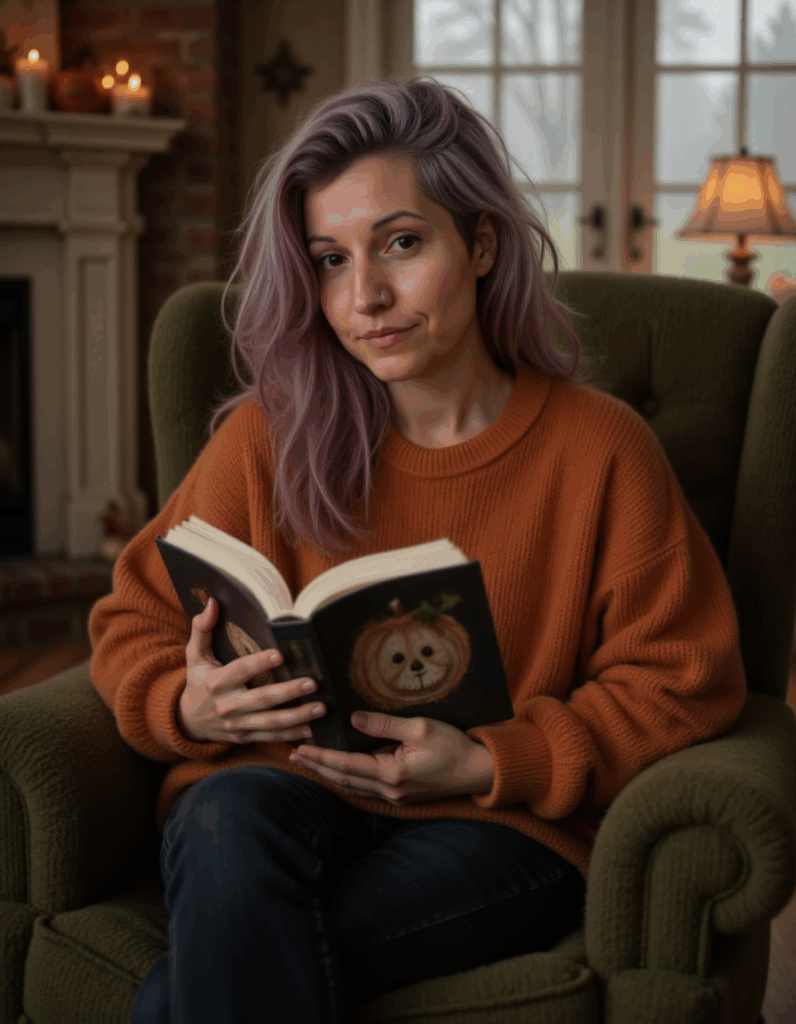
Unlike jump scares or horror films, these ghosts are comforting. They’re like friendly spirits in an old house—familiar presences that make the space feel lived in. The cozy gothic aesthetic turns haunting into something elegant: a soft echo, a shadow that stays with you not to terrify, but to accompany.
Why We Choose to Haunt Ourselves
There is a profound reason we curate these online aesthetics. In a fast-paced world, aesthetic feeds provide stability. By surrounding yourself with images of autumn, candlelight, or Victorian interiors, you create a personal ritual, a reminder of the moods and values that matter most to you. These images are not random; they are intentional hauntings, carefully placed so that when you or others walk through your digital home, they feel your presence even when you’re not there.
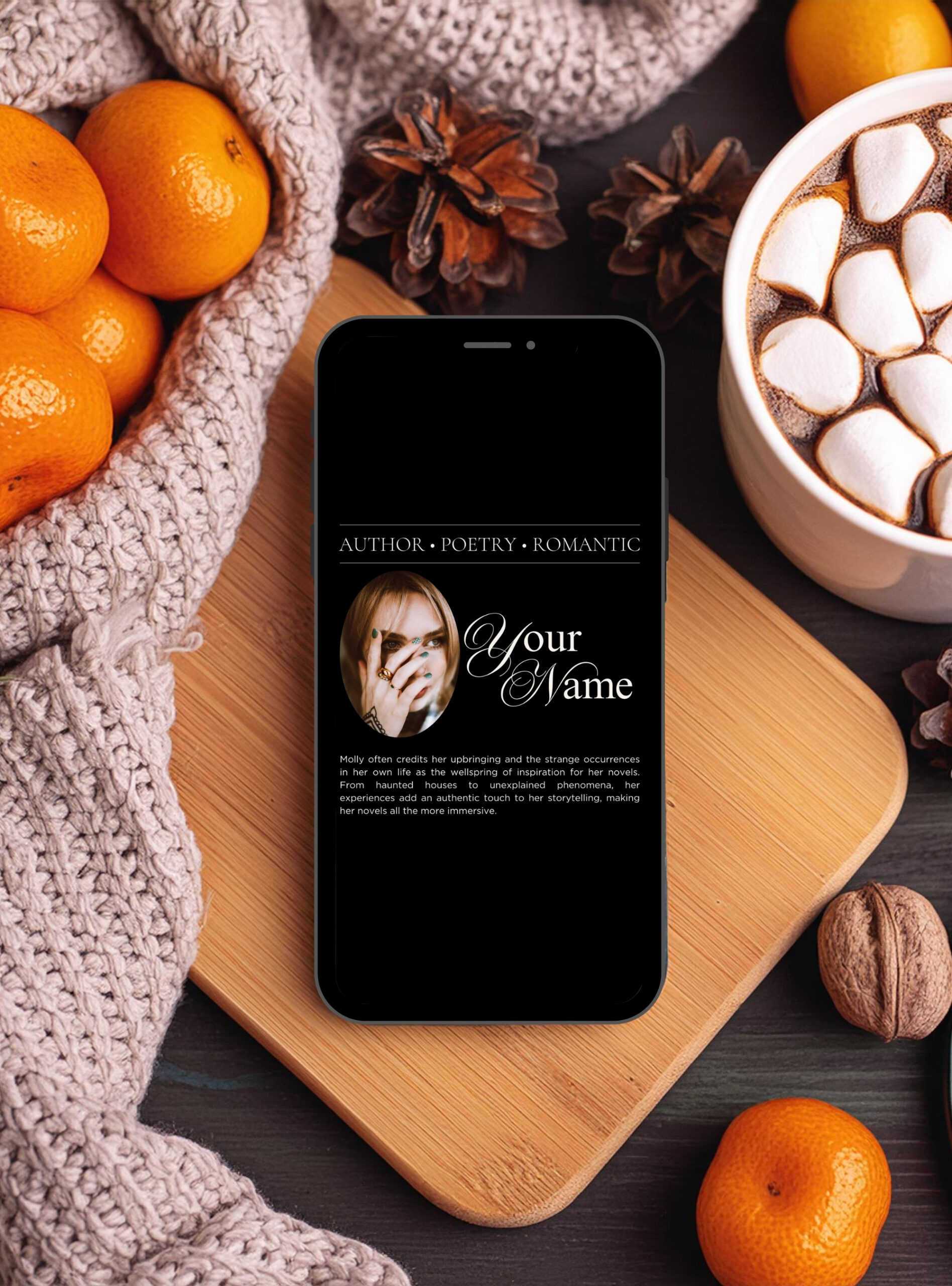
In this way, haunting becomes a form of self-expression. It’s not about ghosts from outside—it’s about leaving gentle traces of yourself. Every candlelit photo, every ornate gate, every amber-hued leaf is a kind of calling card: this is the mood I inhabit, this is the season I carry, this is the vibe I want to live in.
Haunted By Choice
Far from frightening, digital haunting in this sense is cozy. It’s the pleasure of living with echoes, of savouring the beauty of impermanence without panic. When you walk through a Victorian cemetery in autumn, you don’t feel terror—you feel awe, quiet, maybe even comfort. Online gothic aesthetics replicate that same feeling: we keep our own ghosts with us, not as fears, but as companions.
In this sense, haunting is not something that happens to us. It is something we choose. We haunt ourselves with images, aesthetics, and moods we want to endure. And in doing so, we discover a surprising truth: that haunting can be beautiful.
